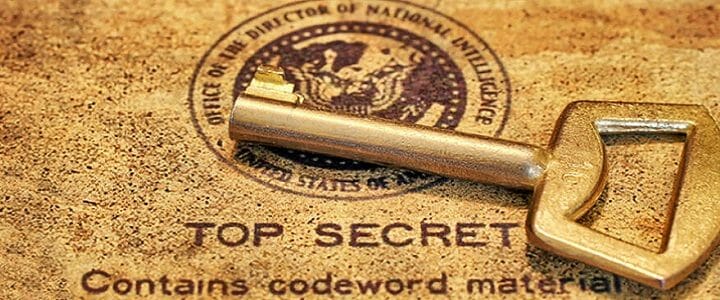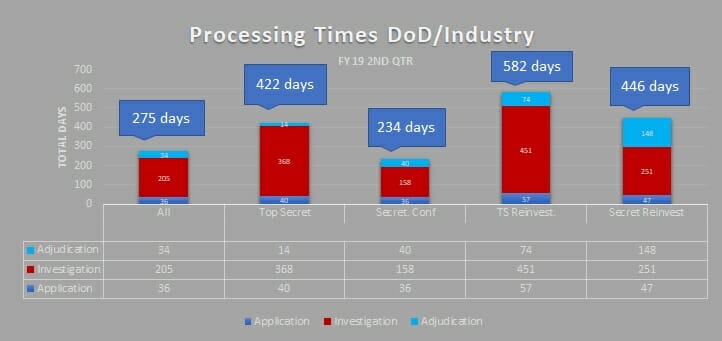The National Background Investigations Bureau (NBIB) is barreling through the backlog, but improvements in security clearance processing times still lags.
Charles Phalen, NBIB director and acting director of the newly formed Defense Counterintelligence and Security Agency (DCSA) briefed government and industry stakeholders at today’s National Industrial Security Program Policy Advisory Committee (NISPAC) meeting.
Phalen thanked Defense Security Service Director Dan Payne, who is now retiring as the DSS mission dissolves into DCSA, which is taking on the vetting, technology protection, counterintelligence and background investigations mission.
A critical aspect of day one for DCSA, which is set to take over for NBIB at the start of the fiscal year, is the movement of the more than 3,000 personnel currently assigned to OPM. On October 1 those employees will become DoD employees. The processes need to ensure a smooth transition for that geographically dispersed workforce has to begin today – and has been in process for months, Phalen assured.
“We’re taking advantage of synergy, energy, and commonality putting this mission together,” he emphasized
A problem that hasn’t been solved
Improvements in the security clearance backlog continue to be a bright spot for NBIB/DCSA. Phalen noted the backlog today stands at 386,000. A year ago it had reached a high of 725,000 pending investigations, prompting congressional scrutiny and leading to the NDAA’s proposal to transfer the background investigations mission. Backlog numbers became the big stick used by those in DoD who sought to wrest control of investigative work back from OPM, and under the DoD umbrella.
While the backlog figures have improved, and even more important figure has not – security clearance processing times.
Current security clearance processing times for DoD/industry applicants are 422 days for a Top Secret security clearance and 234 days for a Secret clearance. That’s a slight improvement for TS investigations, but shows Secret processing times the same as the previous quarter.
With initial investigation timelines showing no improvement, periodic reinvestigation times are actually getting worse. And it’s not the investigation that’s the problem – security clearance adjudication times have doubled or tripled in some cases, Secret reinvestigation times (updating investigations for those who have already obtained clearance) skyrocketed from 289 days in the first quarter of 2019, to 446 days in the second quarter. Top Secret reinvestigation times were at 582 days for the second quarter of FY2019.
Focus is on enrolling more clearance holders into the governments continuous evaluation (CE) program, rather than improving PRs. Thus far in FY2019, 36,586 PRs have been transitioned into CE. But the number enrolled still represents around 1/3 of the cleared population. That means millions are affected by PR delays.
One of the key issues with delayed PRs is the clearance limbo created by candidates who have been submitted, but await a final determination. While they should be able to change jobs or accept a new cleared position with a government agency, many organizations fail to recognize the security clearance because it is technically ‘out of scope.’ This issue is one recently highlighted in a white paper by the Intelligence and National Security Alliance (INSA). Their report focused on the price the government pays when security clearance reciprocity is ignored. The report estimated as much as 10% of the cleared contractor labor force is idle at any given time due to issues with reciprocity.





